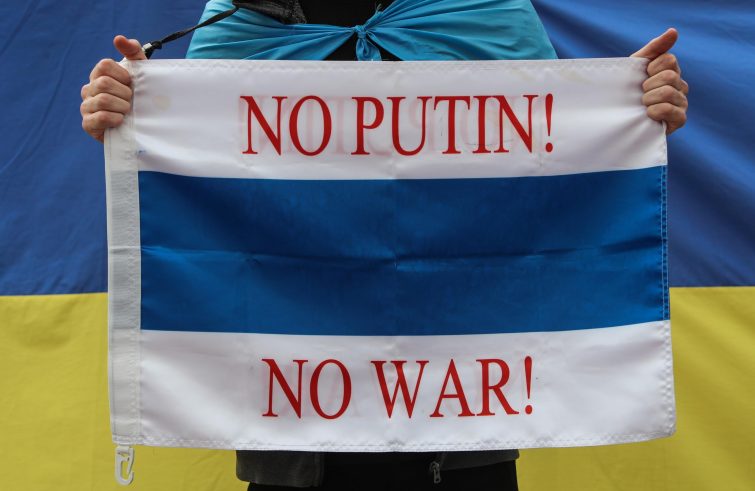
The “Anti-war students” activist movement, named after a Telegram channel in Russian that gathers stories of “acts of disobedience” and instructions about how to live one’s opposition to the conflict in Ukraine, travels on the web. Subscribers are a little over 5,200. The group supports the “self-organisation of civilian anti-war initiatives”. But, on the premise that “protesters’ rallies and marches in Russia prove to be ineffective” as they end up with the protesters stopped and taken away, crammed into carts”, the group’s strategy consists in “creating a community that can resist in the long run”, by organising itself from the bottom up, providing mutual assistance, planning initiatives and sharing tasks. The first thing people who want to commit needs to do, it says, is knowing one’s city or one’s university and “mapping where security cameras and police stations are located”, so one can then act more safely. Sticking protest posters and writings or sending letters are actually the most recurring initiatives, in this group. Almost every day, then, “reports” are posted on the initiatives that have been successfully completed. “Acts of disobedience appear and go on”, could be read a few days ago: Crimean Federal University, Moscow State Institute of International Relations, Samara National Research University, next to “many, many more cities, are the map of modern Russia”, places that, if connected to one another, will give “new spaces and free territories for a new time, where the war is already in the past”. In addition, the group has provided materials with instructions for young people on draft and alternative civilian service, asking to spread such information around, “especially in the regions where people are more often called to arms and where there is less information about how to avoid military service and being sent to the frontline”. The “Association of lawyers for conscientious objection to military service” has helped them prepare the materials and is ready to “assist people who are threatened by the army”.
The stories of those who have fallen instead in the web of the police or have suffered repressive actions are also shared in the group. This is the case of Denis Grekov (professor at the Russian Presidential Academy of National Economy and Public Administration, Ranepa), who was forced to resign “of his own will”, after posting a message that criticised the exploitation of “Victory Day” for propaganda and defined the war in Ukraine as “shameful and mean”. Harshly criticised by his colleagues for “disrespecting the memory of those who fought and died in the Second World War”, Grekov resigned and, “fearing persecution, left the country”, the channel reports. The students of the Ranepa Institute appealed against the ruling and sent the management of the University a petition that said that “Grekov is an excellent teacher, a highly qualified specialist, very popular and highly regarded by his students, and his departure is a substantial loss for the whole Institute of Social Science”. The petition also voices opposition to the fact that “the teacher’s personal opinion and positions outside of the walls of the university were the reason he was dismissed”. The petition has already been signed by 125 people, as reported by the Telegram channel, which asks: “Sign if you disagree with the sudden disappearances of your teachers and colleagues”.
